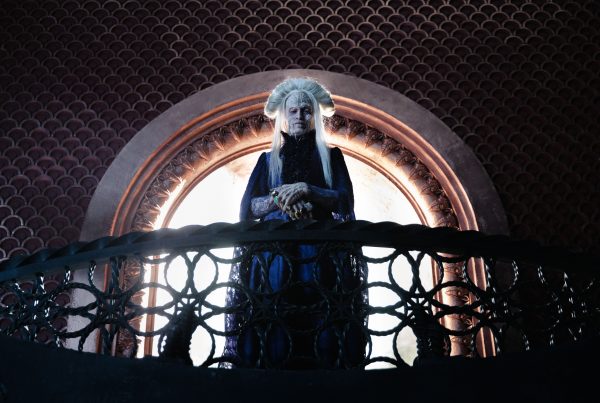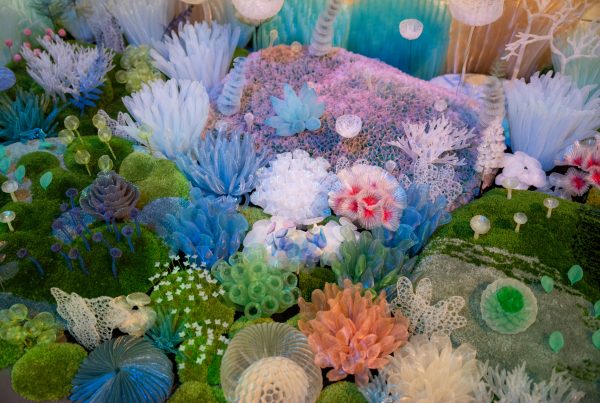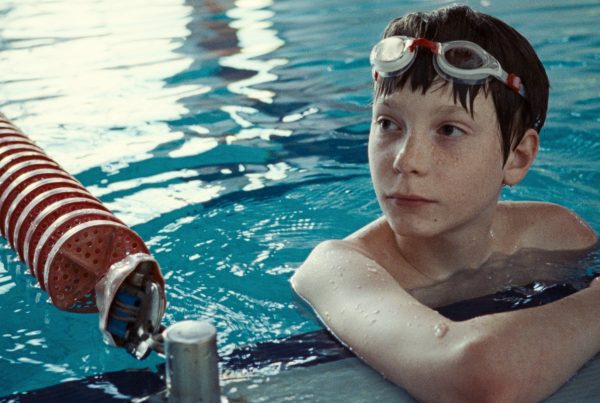
Apparently, writer-director Nicole Holofcener saw something in the late James Gandolfini that no director before her did: the bearlike mobster’s potential as a romantic comedy lead. At one point in “Enough Said,” Eva (Julia Louis-Dreyfus), the divorcee who starts a relationship with Gandolfini’s Albert, says of him, “he’s not handsome in the traditional sort of way,” but that the more time she spends with him, the more he seems kind of sexy. It’s true; the role unspools reels of charm and comic potential for the actor, who has been long sequestered in menial character parts as tough guys and callous bureaucrats since his “Sopranos” breakthrough. This is a new Gandolfini, beaming from projectors like some posthumous revelation, and it’s both beautiful and heartbreaking to watch. Why didn’t other filmmakers see it in time?
Just as Gandolfini expresses untapped comedic chops, comic actor Louis-Dreyfus explores her dramatic side better than ever. Gandolfini, in his second-to-list film role, may be the movie’s headline, but Louis-Dreyfus is the body copy, its largest chunk of psychological and narrative substance. She’s another likeably misguided Holofcener archetype, well-meaninged but selfish, the vulnerable architect of her own demise.
Her Eva is a masseuse, a position that allows her to rejuvenate others while her own life languishes; she has an ex-husband she barely speaks to and a too-slim connection to her bright daughter, who is about to move away to college. The heavy massage table she lugs around from the film’s first scene onward becomes like another appendage, or the physical manifestation of her (self-imposed) burdens in life.
Things start to change when she attends a society gala and meets two people: Catherine Keener’s Marianne, New Age-y poet residing in a Feng Shui paradise, and Gandolfini’s Albert, a television archivist who lives in a disorderly suburban home. Eva grows close to both – the former as a client and confidant, the latter as a boyfriend – but an inconvenient fact soon threatens to torpedo her newfound contentment.
“Enough Said” may be Holofcener’s most commercial film, but the director of “Please Give” and “Lovely & Amazing” has sacrificed none of her caustic wit and emotional honesty. This is still a frequently brilliant and uncomfortable movie, in similar ways that HBO’s “Enlightened,” whose episodes Holofcener has directed, is brilliant and uncomfortable. Through a game-changing plot twist, the chemistry between Eva and Albert, which is initially electric and infectious, gradually implodes into mutual disgust. This being a Holofcener film, the perceptive humor is still there, but it’s tinged with inchoate contempt. Along the way, the pain on Louis-Dreyfus’ face and the hurt silently dripping off Gandolfini’s is authentic.
Holofcener’s ultimate genius may be in taking a premise that sounds like an impossibly contrived, cocktail-napkin idea and creating a funny, sad and beautifully tender contemplation on the human condition. Even in a Hollywood rom-com, this celebrated indie auteur can do no wrong.
“Enough Said” opens today at most area theaters.







